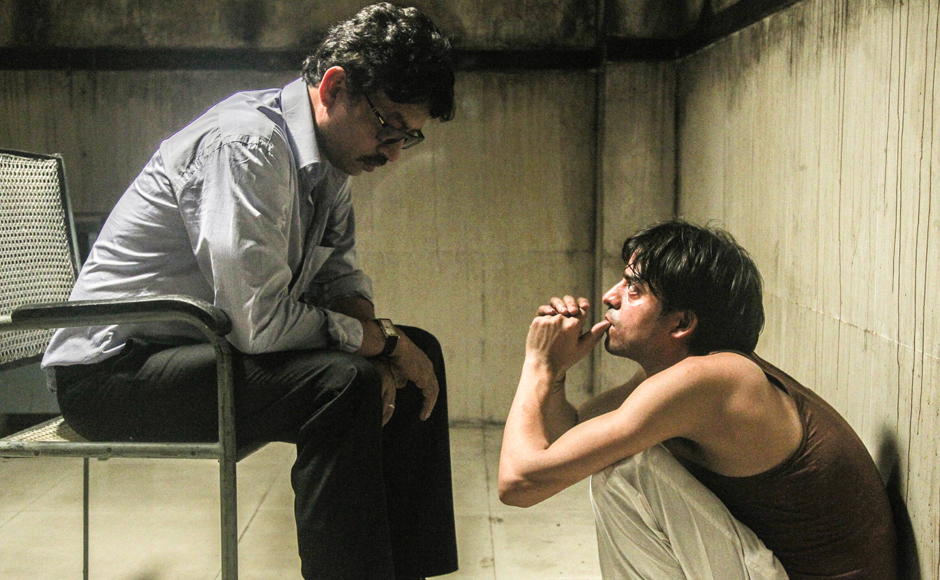Cinematically, there was greater anticipation on how a film written by Vishal Bharadwaj and directed by Meghna Gulzar would tap into this ambiguity of truth; perhaps even more than knowing the actual verdict the film has passed
Like most people who have followed the Arushi Talwar case in the media, the point that intrigued me most was this – after months of evidence and counter evidence, I was not able to pick a villain or choose a side.
The umpteen flip flops triggered both by an apparently bungled investigation and a hedonistic media in overdrive meant that from this distance, your opinion mirrored primarily what the press covered. You couldn’t believe that parents could kill their child, yet a voyeuristic surprise existed every time you read a report that hinted this indeed was the case. You found it easy to believe that the domestic help would be the guilty, and their exoneration startled you with its unexpectedness. It was sheer drama; exactly how the media wanted it.
Less than halfway through the film, and you realized that the makers did find a party guilty, and the suspense ended sooner than you’d have hoped for. That was perhaps the only part of Talvar that could therefore be considered a slight disappointment. It’s not of course, because the clarity and conviction of the makers in taking a stand against the investigating agencies, officials, and the larger justice system in an emotionally sensitive situation is admirable.
Talvar is a superbly crafted case against the government agencies that prosecuted Arushi Talwar’s parents for her murder. Combining intensive research with cinematic liberties, the story quietly and without prejudice shows the extent to which an innocent couple is trapped in the web of a hopelessly unprofessional and often malicious investigation. The final scene, where Irrfan Khan ridicules the investigation team, is combustible. Dialogue and performances are elevated to refined levels, and less is more has never been more effective. Note the ignorantly happy assistant who keeps on presenting photos and other evidence to the presiding officer, unknowingly digging his grave each time. Or the churlishness of the junior office presenting his ridiculously theoretical assumptions that pre-empt real proof to prove his point. The support roles aid the ultimate purpose of the scene – to prove the parents are innocent – as much as the leading man Irrfan does, and it is gratifying to see the balance that director Meghna Gulzar achieves here by using the antagonists just as effectively to construct the scene.
All this is of course held together by a very solid, thorough and detailed screenplay. The narrative is mistakenly compared to Akira Kurosawa’s landmark film, Rashomon. Kurosawa actually delved into the ambiguity of truth there, and you never quite know which version of the truth to believe. Meghna Gulzar is clear on what the truth is, and chooses to show how it is made ambiguous. She patiently takes the story through the various revelations, and at each stage shows what really happened – according to her, of course – and how it was covered up by the investigating authorities. There is no great conspiracy or revelation on why the CDI – the investigating authority – chose to mislead the case, and the writers choose to attribute the grave injustice that happened to human frailties like personal egos and greed.
This realism is extended in the film’s treatment. Shot extensively on handheld, aided with a minimal background score and production design, Talvar gives you a feeling of immediacy to the proceedings. And yet it’s not all serious, as you can’t help but smile when the radio in one scene breaks into “Mera kuch samaan…” at one point.
Tabu’s track is questionable, and is not the most elegant device to give Irrfan Khan’s character a human perspective. It succeeds in showing his character to have it’s own flaws, but his performance itself is pitch perfect. Both – his ownership of, and submission to, a character – make it a masterclass, and his consistency in delivery such brilliant performances in equally mesmerizing films has meant that you equate a film with him in the lead as a quality product. This is equal to how we would consider every SRK film in the 90s to be a blockbuster, and is a huge tribute to one of our best actors. Giving him equal support are Neeraj Kabi and Konkana Sensharma as the bereaved parents wrongly accused of murdering their child. Watch them act out a hypothetical scene where they are supposed to murder their child, and you’ll know the difficulty of their roles in navigating the film.
Talvar minces no words giving you a judgment. The beauty of the film though, lies in the fact that it does not need to say much to make its point.
Hindi/Drama/Color


